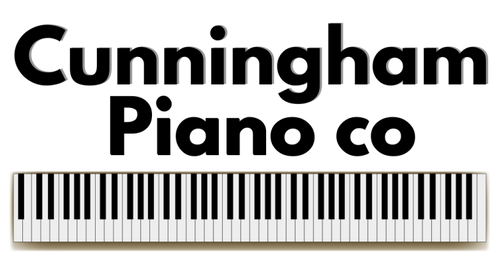Maintaining Pitch and Tone The soundboard is the single largest piece of wood in your piano. It is the speaker of the piano. In order for the piano to have proper tone, the strings, bridge, and soundboard must be in tension together. To make this occur, the piano is designed and built so that the strings have a slight downward angle on both sides of the bridge. This is called downbearing. Along with this, the soundboard must have a slight upward curve which is called crown. The downbearing and crown must be very precise. It takes very little change to dramatically compromise the tone.
When the humidity drops, the soundboard shrinks and flattens, lowering the tension of the strings. The pitch will drop or become flat. The technician will have to perform a pitch raise to bring the piano back to the proper pitch before a fine tuning can be done. When the humidity rises, the soundboard absorbs moisture from the air, making it swell and increasing the crown. Now, the pitch will go up or become sharp. This chart demonstrates how drastically pitch can change when your piano is exposed to fluctuations in the humidity during seasonal weather changes.
 One way to maintain optimal humidity levels and extend the life of your piano is to have a humidity system installed, such as the one featured on the right. Contact our piano technicians today to discuss the humidity needs of your piano.
Contact Us
One way to maintain optimal humidity levels and extend the life of your piano is to have a humidity system installed, such as the one featured on the right. Contact our piano technicians today to discuss the humidity needs of your piano.
Contact Us


